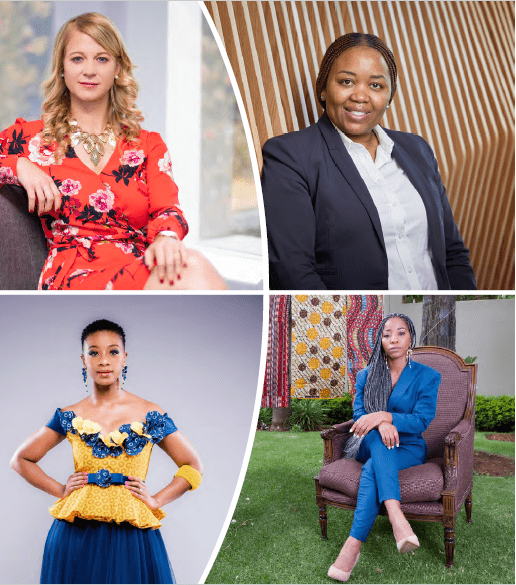This August, SME South Africa’s ‘Breaking the Funding Glass Ceiling’ Series, sponsored by Nedbank, unpacks the funding challenges women entrepreneurs continue to face, explores the innovative ways women entrepreneurs are financing their businesses AND celebrates the funding successes that have helped women build innovative & impactful businesses.

The impact of access to funding cannot be underestimated; while women make up half of the global population, very little funding goes to women-owned businesses.
Our mission with the Women’s Month 2020 ‘Breaking the Funding Glass Ceiling’ series was to shine the spotlight on the impact of access to funding on female entrepreneurship.
There are many reasons for the constraints facing women entrepreneurs, many of which are covered in our round table discussion featuring female VCs, entrepreneurs and other stakeholders in the Women & Funding Round Table Part 1 – Challenges: ‘The System Just Wasn’t Built for Women’. Some of the reasons include financial providers not viewing women-owned businesses seriously or women being offered smaller amounts of financing or loans.
Increasing the visibility of female entrepreneurs
Access to finance is one of the critical components in growing female entrepreneurship.
One of the most damaging aspects of the funding gap is that many women don’t start businesses and in turn, we have insufficient female role models.
To address this we launched the Female Entrepreneurship & Funding Case Studies, showcasing the funding stories of four inspirational female entrepreneurs – Stacey Brewer (SPARK Schools), Tlalane Ntuli (Yalu), Salamina Mosese (Sorele Media) and Mukundi Lambani (Ambani Africa).
With the case studies it was important to show women-owned businesses and profile women entrepreneurs to inspire and attract more women into entrepreneurship.
Here are some of the biggest lessons we are taking from Women’s Month 2020.
1. The current funding system needs to change
Venture capitalists and financial providers do not view women-owned businesses seriously. Women get offered smaller amounts of financing or loans.
We have very few women fund managers and investment committee members. Thus when pitching for funding, women are most of the time faced with an all-male panel. Women are asked tougher and more personal questions which is not usually the case with male entrepreneurs. In certain situations, you get outright harassment that comes in different forms and manners. – Irene Ochem, founder and chief executive officer of Africa Women Innovation and Entrepreneurship Forum (AWIEF), a pan-African women’s economic empowerment organisation
2. Women do belong in technical and/or B2B spaces
There is a common misconception that women aren’t building in technical and/or B2B spaces, which simply isn’t true. While there are many women building consumer-focused companies, these “deeper tech” spaces are not reserved for men. In the 2019-2020 SoGal Global pitch competition, we received over 1700 startup applications from around the world. Out of these startup applications, 75% were women founders, about 50% were consumer facing and 50% based in “deep tech” or B2B spaces. – Kelley Henry, executive director of the SoGal Foundation, a millennial-focused VC fund
3. We need more inclusive funding models
Venture capitalists need to step up their game too when it comes to diversifying their portfolios. Women should support other women, applications should not disclose gender and partner voting should be unanimous. – Donna Rachelson, branding and marketing specialist, CEO of Branding & Marketing YOU and author of SA’s best-selling book Play to Win: What Women Can Learn From Men in Business

4. Unlocking the economic potential of women makes both economic and social sense
People who reflect their communities are best equipped to solve some of the world’s largest unmet needs. The more personally an entrepreneur understands the market they’re trying to serve, the better they will be at capturing that target market. Because women make up about half of the global population, we should be the entrepreneurs who are building, scaling, and owning these businesses. Women entrepreneurs have proven to outperform men in terms of returning capital, so even if it’s purely a business decision (and it’s clearly much more than that), investing in women just makes sense. – Kelley Henry
SEE ALSO: Women & Funding Round Table Part 2 – Solutions: ‘We Need More Inclusive Financing Models’
5. Women entrepreneurs are harnessing their skills to navigate funding constraints
Women are great networkers and most entrepreneurs tend to harness this. – Shanéy Vijendranath, founder of data analytics platform, MomSays
6. We need to address the confidence gap and how it holds women back
What we do not tackle enough is the discrimination from within. How a lack of self-confidence is a form of discrimination. It is what stops most women from applying for funding or participating in forums that decide on how funding is allocated.
This then fuels the perceptions that women do not qualify.
The more confident women are in business and the next steps to grow the business, the less the external discrimination is a roadblock. The confidence drives their persistence to gain access to what they need to achieve their goals.
If we doubt our own eligibility to apply, and do not participate in interrogating how funding is allocated or create our own forums, the discrimination will continue. – Marang Marekimane, founder of Business Process Mechanics
7. It’s important to be investment ready
Women need to take this into their own hands by focusing on business traction to peak investor interest. Being able to show an increase in the orders coming in and that their business is bigger than just one person are vital. Of course, also key to showing growth is knowing what the key financial drivers of their business are and being comfortable talking about them – many women fall down here.
Focused marketing will go a long way too, as will a clear understanding of target markets and key business differentiators. It’s not always possible to wait until everything is perfect before looking for funding. Women tend to be perfectionists and need to practice confidence, which goes a long way towards ‘faking it until you make it.’ – Donna Rachelson
8. Funding is not the only way to grow your business
Applying for funding is not the only way to take your business to the next level, however it can be a good option either at the start of the business or to move to the next stage. However, one needs to be wary of relying too much on this kind of assistance. We need to get to the point where we strive to build on business models that take our businesses out of the funding cycle. – Salamina Mosese, co-founder, Sorele Media
9. It may take more than one try to secure funding
South Africa has a small investor pool. Do not think you are going to only knock at one door once, sometimes it takes multiple knocks with different people to open that one door. – Tlalane Ntuli, co-founder and COO, Yalu






